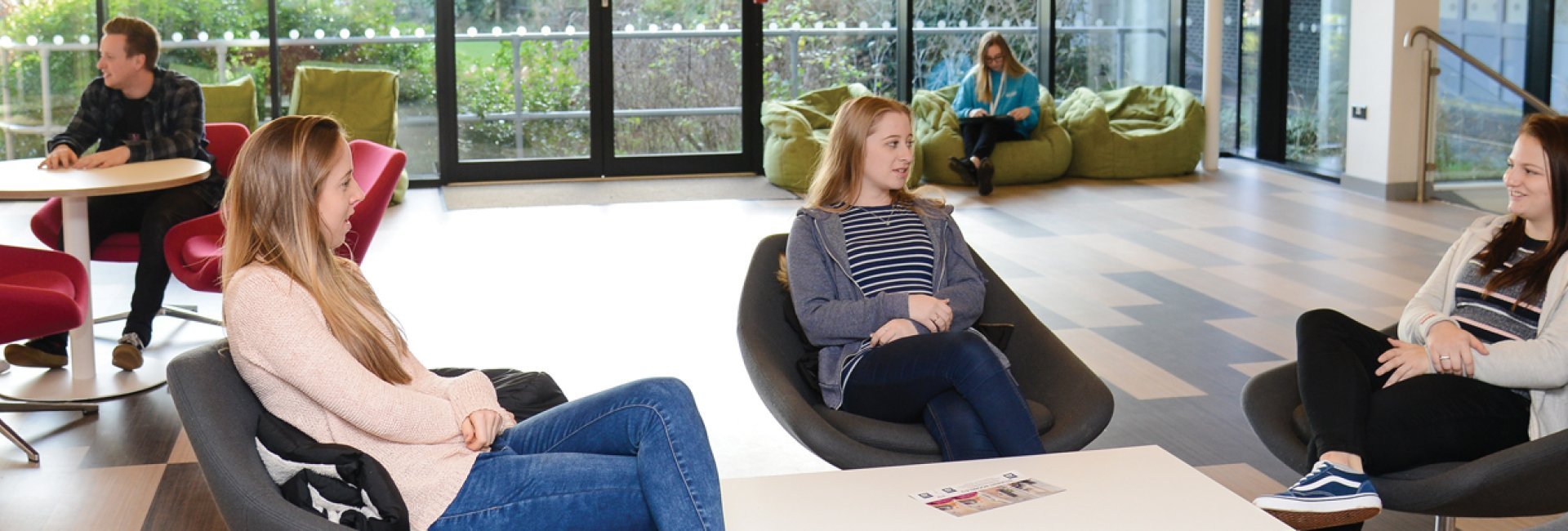Plymouth Marjon University - Undergraduate and Postgraduate
21 Jun 2025, 09:30
Plymouth


Sports Therapy is a hands-on career working with many types of people, from professional athletes to members of the public looking to maintain health and fitness. The sports therapy industry is growing at a rapid pace and demand for skilled, expert professionals is increasing in line.
During your study you will cover a range of disciplines including the design of injury prevention programmes; assessment and treatment of injury; sport psychology; rehabilitation programmes and soft tissue therapy techniques.
Why this course at Marjon?
• A minimum of 450 hours clinical experience.
• 95% go on to work or study within six months of finishing.
• Close industry relationships give you excellent placement opportunities with organisations like Plymouth Raiders, Plymouth Argyle FC, Plymouth Speedway, Plymouth Albion and Raiders Wheelchair Basketball.
• Experience in practical sports therapy starts from the very beginning of the course in our modern teaching clinic, always underpinned by scientific principles.
• Includes use of the latest technologies, such as diagnostic ultrasound, an innovative anti-gravity treadmill, RS footscan, electrotherapy modalities for clinical assessment and rehabilitation treatment.
What might I become?
Our graduates have gone on to work for organisations including Plymouth Argyle, Plymouth Albion and Torquay United, as well as setting up their own successful businesses.
Find out more at Open Day
Open Day is your opportunity to find out more about studying Sports Therapy at Marjon. You’ll meet lecturers and look around our world class Sport & Health Centre. Our student life talks will help you prepare to go to university, covering topics such as careers, funding, sport and our award winning on-campus student support service. You can also take a tour of the campus with a current student and find out about the student-led clubs and societies.
Book on to an Open Day at: www.marjon.ac.uk/open-day
Why study at Marjon?
• First-class facilities used by world-class athletes
• Small, person-focused university with a big personality
• No.1 university in England for Student Satisfaction (Complete University Guide 2023)
• Southwest University of the Year for Student Life and Student Support (WhatUni Student Choice Award 2022)
• No.3 university in England for Learning Community (National Student Survey 2022)
Hannah - Third year, Sports Therapy;
“In the first year we learnt the basic anatomy and physiology needed to assess soft tissue injuries and we got hands-on experience learning massage techniques. In our second year we learnt about clinical diagnoses and different treatment techniques, and personal training and gym instructor qualifications are built in to the coaching module. Third year involves injury prevention, strength and conditioning as well as a dissertation. There’s loads of placement opportunities throughout the degree, including at the on-site Marjon Sports Therapy Clinic.”
1st Year
Engaging with learning: Personal and professional development
Introduction to sport, exercise and health psychology
Anatomy and physiology for sport and exercise sciences
Functional anatomy for sport therapy and rehabilitation
Soft tissue theory
Musculoskeletal assessment
2nd Year
Research methods and analysis in sport and health sciences
Work based learning
Injury treatment modalities
Principles of exercise, coaching and rehabilitation
Manual therapy of the spine
Pathology and clinical reasoning
3rd Year
Honours project
Injury biomechanics
Strength training, conditioning and rehabilitation
Diagnostic, rehabilitation and injury management
Sport therapy - clinical experience
Assessment methods include case studies, written exams, essays, laboratory reports, poster, competence-based exams and practical exams.
Professionally accredited courses provide industry-wide recognition of the quality of your qualification.

Learn what it's like to study at Plymouth Marjon University. From key stats to campus highlights, open days, and more - find everything you need to know here.
The following entry points are available for this course:
Year 2 – Higher National Certificate or evidence of 120 Credits gained at Higher Education. Module details will be required to check that previous study matches Marjon curriculum.
Year 3 – Foundation Degree or evidence of 240 credits gained at Higher Education. Module details will be required to check that previous study matches Marjon curriculum.
Other Level 3 qualifications will be considered
This section shows the range of grades students were previously accepted with - learn more. It is designed to support your research but does not guarantee whether you will or won't get a place. Admissions teams consider various factors, including interviews, subject requirements, and entrance tests. Check all course entry requirements for eligibility.
Operated by the Office for Students
Employment after 15 months (Most common jobs)
Go onto work and study
The number of student respondents and response rates can be important in interpreting the data – it is important to note your experience may be different from theirs. This data will be based on the subject area rather than the specific course. Read more about this data on the Discover Uni website.
| Location | Fee | Year |
|---|---|---|
| EU | £14500 | Year 1 |
| Republic of Ireland | £9250 | Year 1 |
| England | £9250 | Year 1 |
| Northern Ireland | £9250 | Year 1 |
| Scotland | £9250 | Year 1 |
| Wales | £9250 | Year 1 |
| Channel Islands | £9250 | Year 1 |
| International | £14500 | Year 1 |
Tuition fee status depends on a number of criteria and varies according to where in the UK you will study. For further guidance on the criteria for home or overseas tuition fees, please refer to the UKCISA website.
EU applicants will be classed as International unless they have Pre-settled or Settled status.
Derriford Road
Plymouth
PL6 8BH
Visit our website Visit our course page
Email:admissions@marjon.ac.uk
Phone:01752 636890